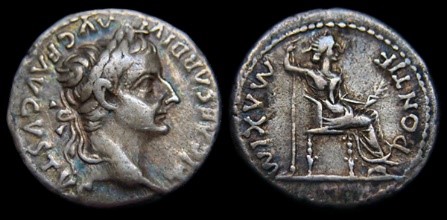When a couple comes to me for marriage, one of the things I have them do is to write me letters, individually, asking to be married. I ask them to reflect on their relationship and to say something about their faith. Over the years I’ve received a lot of letters and some are very deep, some are very emotional, some are kind of surface-level. I usually find something in every letter to quote in my wedding homily. Some years ago, I celebrated the wedding of a couple that was very faith-filled. They had been raised by strong Catholic families, had gone to Catholic schools, and faith was and continued to be a big part of their lives. One of the most quotable lines in their letters came from the groom. He said, “Many people want to think of God only in times of trouble or sadness; (my fiancé) and I want to think of God all the time.”
I think he got at what our Liturgy of the Word is teaching us today. In the Gospel, the Pharisees are at it again: they want to trap Jesus in speech so that they’ll be able to bring him to justice. And so they decide to ask him if it’s lawful to pay the census tax or not. It was a no-win argument: if he said it was not lawful, then he’s a revolutionary and should be put to death; if he said it was lawful, then he’s an idolater – putting the government over God – and should be put to death. But, as usual, Jesus answers their question with a question. “Whose image is this (on the coin) and whose inscription?” Since it was Caesar’s, his instruction is to give Caesar his due, but then, to give God what he is due.
This then becomes a reflection on the first commandment of the Decalogue: “I am the Lord your God; you shall have no other gods before me.” This is echoed by the prophet Isaiah in today’s first reading: “I am the Lord and there is no other, there is no God besides me. It is I who arm you, though you know me not, so that toward the rising and the setting of the sun people may know that there is none besides me. I am the LORD, there is no other.”
There’s a reason that this is the first commandment: it is foundational to all the others. If we get the first commandment right, the others should follow pretty easily. If we know and live that God is in charge, that God is God and we are not, then we will easily live the other nine commandments dealing with love of God and love of neighbor. The trouble is, even though it’s easy to say, it’s difficult to do.
Modern life does everything it can to distract us. It’s hard to get to Mass because the kids have sports or dance or studies or whatever. And as wonderful as those things are, they don’t lead the children to God, so they can’t take precedence over Mass. It’s hard to take time for prayer because we are busy – we work and we have family commitments and we have things we want to do in the community. And as great as all that is, it doesn’t lead us to God, so they can’t take precedence over our prayer. It’s hard to be of service because we’re busy people, and that’s a shame because service – stemming from a love of neighbor – leads us to love of God, and we’ve said no to it again. Just like those Pharisees, we have too often allowed ourselves to be distracted from what’s really important, we’ve said no to a relationship with our God, and we have put him out of our lives and our families’ lives time and time again.
Giving to God what belongs to God is foundational. Failure to do that leads to all other kinds of sin. Today, we have in our Scriptures an examination of conscience. Have we been zealous to give to God what belongs to God? Have we taken time for prayer? Have we been of service to our brothers and sisters in need? Have we made teaching the faith to our children our primary priority? Have we been vigilant to prevent anything from getting in the way of celebrating Mass as a family? If we have fallen short in any of those ways, this is the time to reverse the course and get it right. Caesar gets what’s his one way or the other. We have to be the ones who are on fire to give to God what belongs to God.
The whole point of our life on this earth is to travel through it and become perfected so that we can go to heaven. A huge first step in that is putting God first, giving to God what belongs to God. And he wants all of us: our hearts, our souls, our lives. He made us for himself, and as Saint Augustine said, we will be restless until we rest in him. What step do we need to make to give to God what belongs to God this week?
